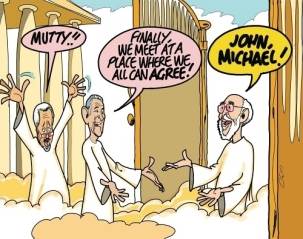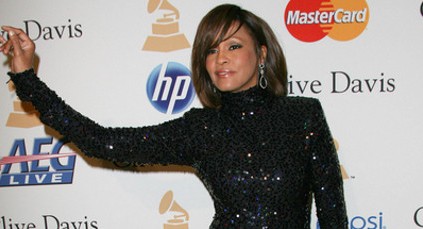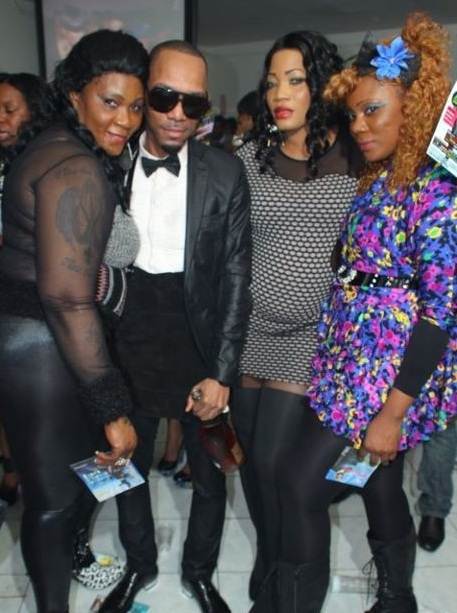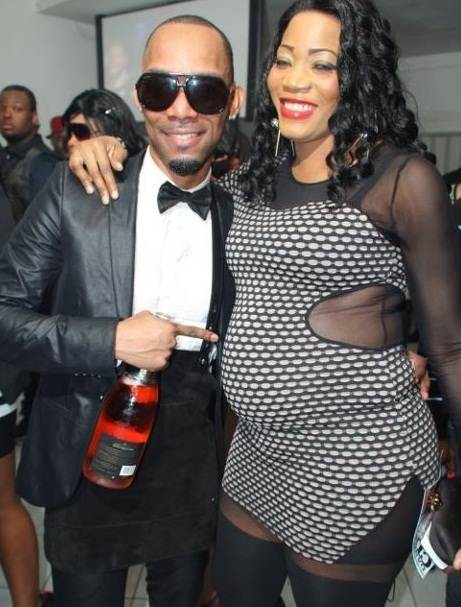DIS IS A CONFESSION!
‘Bless me Father, for I have sinned. I have been with a loose girl’.
The priest asks, ‘Is that you, little Joey Pagano ?’
‘Yes, Father, it is.’
‘And who was the girl you were with?’
‘I can’t tell you, Father, I don’t want to ruin her reputation’.
Well, Joey, I’m sure to find out her name sooner or later so you may as
well tell me now.
‘Was it Tina Minetti?’
‘I cannot say.’
‘Was it Teresa Mazzarelli?’
‘I’ll never tell.’
‘Was it Nina Capelli?’
‘I’m sorry, but I cannot name her.’
‘Was it Cathy Piriano?’
‘My lips are sealed.’
‘Was it Rosa DiAngelo, then?’
‘Please, Father, I cannot tell you.’
The priest sighs in frustration. ‘You’re very tight lipped, and I admire that.
But you’ve sinned and have to atone.
You cannot be an altar boy now for 4 months. Now you go and behave yourself.’
CLOVIS NUH HEEEZIE ++
 The day I met ‘Motty’ Perkins
The day I met ‘Motty’ Perkins
By HG HELPS Editor-at-Large [email protected]
Sunday, February 12, 2012
IT was during the early part of 1993 that a Jamaica Observer team decided to visit the St Elizabeth home of Wilmot “Motty” Perkins, with the objective of doing a feature on the outspoken, if not controversial, but colourful individual.
The team that included Sandra Champagnie, then Sunday Observer editor, and myself, went to Malvern with an open mind, not knowing what to expect from the tough-talking radio host who had racked up more political enemies than the number of new members of the Jamaica Labour Party and the People’s National Party recruited at the time.
PERKINS… politicians don’t like to hear the truth, so someone has to tell it for them
1/2
“Come, come on in,” was the initial greeting from the man who gave his age as “somewhere around 60” after Neville, Perkins’ then gardener, had ushered us inside the swanky premises.
We felt the overwhelming presence of the man who resembled some biblical character with his long beard, and who looked like he might actually have the power to turn water into wine. After a while, though, in his jeans that were cut off at the knees, and his white T-shirt, Motty looked more like an American hippy than one whose voice and pen could have such tremor-like impact on the nation.
He was fairer in complexion than television and newspaper columns depicted him and his towering height presented him in an even more intimidating light.
“You want something to drink… or even eat? You travelling from very far, from what I hear,” he asked.
“Maybe just a drink for now,” Champagnie responded. “We really want to know as much about you as we can.”
Motty had expected company. The interview had been confirmed a week before. It was one that was slated to be done by Champagnie, but I had to get in on the action. After all, it was Motty Perkins, one of my heroes of journalism and broadcasting.
Neville, the latest in the line of faithful gardeners, was there as a handyman too, and would respond positively to any demand made by Perkins and his lovely wife Elaine, still one of the nicest women I have ever met.
Some say she was the direct opposite of her husband, but forget the man behind the microphone and the man wielding that ink-filled pen. Motty, too, in a social setting at any rate, was right up there as a true human being.
Even with Neville watching his back, he would take no chances. His .38 pistol, stuck in his jeans waist, said it all.
“You never know what will happen in these times, you know, sir. So you have to be prepared just in case you get someone here whom you did not invite for crackers and cheese,” he said in justification of the presence of his licensed pistol.
It was soon down to the business of interviewing him for the Sunday feature.
The venue, by his admission one of his favourite places, was his library, a entire room filled with must have been hundreds of books. Champagnie suggested on our way back to Kingston that Motty must have read and retained every word in those books.
“By the way, I am cooking roast beef, but I have asked my boss (Elaine) to oversee things for me. You are free to stay for dinner,” he told us, earning a zippy glare from vegetarian Champagnie, but a quick nod of approval from the other hungry visitor.
Along with journalism Perkins ventured into farming, and was well known for his cattle farm in St Mary.
“Why is it that you appear to hate politicians, particularly those in the PNP?” was one question put to him.
“Look, sir,” he responded, adjusting the pistol, though not in an act of intimidation. “Politicians don’t like to hear the truth, so someone has to tell it for them. I have nothing personal against them and I don’t have an axe to grind, but if we can rid this country of our politicians, we will be better off.”
Regarding his association with former Prime Minister Michael Manley and in reaction to suggestions that he despised Manley, Perkins admitted that while he was once a member of the youth arm of the PNP and had strong party sympathies, he felt that Manley’s economic and social policies of the 1970s, in particular, had damaged Jamaica.
“But if you say things that seem to be uncomplimentary about Manley, you hear all sorts of things,” he added.
“So it was not true that you hate Manley because he took away a girl from you?” was the next question put to him.
“Ha, ha, ha, ha, ha,” emerged the infectious laughter that was known to reverberate across the length and breadth of the nation.
“Me?Manley took away my woman? No, sir, no such luck for him. I was too sharp with the women for even Manley to knock one from me,” he said.
There were several other rumours about the former Titchfield High and Calabar High School student that he flatly put down to people bad-mouthing him.
Motty’s background as an amateur boxer in the middleweight division, starting from his days at Calabar, gave rise to stories about him as a street fighter, who would punch down a man if he dared to cross his path.
“I have heard so many stories about me you see, sir, that really amuse me.
“I hear that I punched down men at JBC (Jamaica Broadcasting Corporation) when I worked there, but I have never been involved in a fight at the JBC. Yet, they say all kinds of things about me.
“Maybe I should have gone professional in boxing, because they say so many things about me.”
The flow of the interview was disrupted several times by Elaine’s intervention.
“You sure you don’t want anything else?” she kept asking, almost after 10-minute intervals.
The smell of roast beef from his kitchen may have even forced Champagnie into thinking that maybe her decision to go the vegetarian route was premature.
Soon, Motty and Elaine had insisted that we halt the interview and partake of the offering.
It had been quite a while since roast beef had touched my tongue, but as good as it smelled, Champagnie kept her distance, instead choosing to consume carbohydrates exclusively.
“How did you get the nickname ‘Mutty’?, as I had felt was the correct spelling.
“Did someone mean to demean you by calling you a dog?
“No, no, no. That nickname was actually derived from Wilmott. I know some people want to call me dog. Indeed, I have been called worse, but it is actually spelt Motty.
“I don’t like the name Wilmot, sir, but I guess that my mother wanted me to bear some torture,” he said.
Perkins did many things differently. He, at the time, did not depend on the Jamaica Public Service Company for electricity, as he always had a standby generator at hand.
He also stored his own water in a huge tank on the property, thus reducing, if not totally eliminating, the dependence on the National Water Commission.
He had a particular love for his Nissan Pathfinder sports utility vehicle, not primarily for its endurance, but because “it has a nice stereo system”, as he veered off course to hum one of the tunes that he often hears.
He, too, sounded like someone who could sing, oftentime belting out lyric after lyric of some of his favourite songs in the middle of the interview.
“Are you a wicked man as they say?” Champagnie asked him.
“Me, ma’am? Me… a sweet, handsome bwoy like me… wicked? Ha, ha, ha, ha, ha, poor me, ha, ha, ha, ha, ha.”
Always suggesting to his callers while he ran talk shows that “you need a lawyer” in solving pressing matters, Perkins was also asked why he kept doing so, in light of the fact that many Jamaicans did not have the financial means to retain the services of lawyers.
“Look, if you are not prepared to pay to defend your right, then I don’t know how you plan to live.
“People must defend themselves against injustice. There is too much of that going on in Jamaica,” he reacted.
Years later, we met to the funeral service for Colonel Ken Barnes at the Garrison Church, Up Park Camp. His vision had him under pressure, but his wit was still intact.
“Bwoy, a feel like a coulda run round the playfield over so,” referring to the cricket ground opposite the chapel.
“So what you no feel me coulda do that? You a laugh after me. Me can do it you know … ha, ha, ha, ha, ha.”
Read more: http://www.jamaicaobserver.com/news/The-day-I-met–Motty–Perkins_10760441#ixzz1mAz1ssyk
REMEMBERING WHITNEY
(AP) LOS ANGELES — Whitney Houston’s last days were spent surrounded by family, catching up with old friends and doing a bit of what she was best known for: singing.
Her death Saturday afternoon in a Beverly Hills hotel room came hours before she was scheduled to appear at an annual pre-Grammy party that introduced her to the industry decades ago and was expected to honor the six-time Grammy winner.
The 48-year-old singer had been making the rounds in the days before the event, appearing at rehearsals and offering advice to singers Monica and Brandy. On Thursday, she appeared with fellow singer Kelly Price on stage at a Hollywood club, where she sang the hymn “Yes, Jesus Loves Me” to loud cheers.
With Houston’s daughter Bobbi in the audience, the women shared a long hug and talked about their lives and families throughout the night, Price recalled Saturday. Houston spent hours standing on the side of the stage at the event honoring R&B music then joined partygoers on the dance floor, she said. “Whitney on Thursday night was one of the girls.”
“She was happy,” Price said. “She was the Whitney I always knew.”
Soul singer Kenny Lattimore, who co-hosted the R&B event, said Houston seemed to be having a good time, making her sudden death “such a shock for me.” He said Houston didn’t appear to be having any issues.
Houston struggled for years with addiction to cocaine, marijuana and pills and the years of hard-living took a toll on her once-pristine voice. During rehearsal for a pre-Grammy event Thursday, Houston appeared disheveled, sweated profusely and her breath smelled of liquor and cigarettes, said a source who was present but not authorized to speak publicly.

Despite more than a decade of problems, including her divorce from Bobby Brown and numerous instances of erratic behavior, Houston was working toward a potential comeback. She had just completed work on a remake of the film “Sparkle,” a project she’d worked to develop for years.
Yet some speculated that she was under the influence after the Thursday club appearance, when paparazzi snapped photos of Houston leaving and looking disheveled. Price called the rumors “totally untrue.”
There was a family feel to the gathering, she said: “Our kids were there.”
Price said she and Houston were planning another reunion, and that she was set to appear at the pre-Grammy gala thrown by her longtime mentor, Clive Davis, on Saturday night. Davis had expected that Houston would sing at the party, which went on as planned, he explained, because the diva would have wanted it that way. It took place in another part of the hotel from where her body was being examined by coroner’s officials.
“I am personally devastated by the loss of someone who has meant so much to me,” Davis said. “She was full of life, looking forward for tonight. She loved music and she loved this night that celebrated music.”
Officials have released few details about how Houston was found or what killed her. A member of her entourage found the singer and alerted hotel security and paramedics already on site for Davis’ gala. They failed to revive the singer.
In the hours after Houston’s death, fans chose to remember the singer in better times, when her soaring voice introduced a new generation to the Dolly Parton song “I Will Love You” and propelled the film “The Bodyguard” into blockbuster status.
Her songs and albums quickly became top-sellers on iTunes, and fans and celebrities alike shared remembrances and accounts of impromptu memorials on the social networking site Twitter. Her death on the eve of the Grammy awards has already prompted changes to the broadcast Sunday, with Jennifer Hudson scheduled to perform a tribute during the show.
Price said her friend would want to be remembered as God-fearing and a good mother, rather than simply a singer. She said she and Houston often discussed parenting and issues unrelated to their musical careers.
She recalled her last night with Houston, the words they shared before Houston delivered what would be her final performance.
“I never ever imagined I’d be talking about her because she’s not here,” Price said.
___
Associated Press reporters Nekesa Mumbi Moody and Mesfin Fekadu contributed to this report.
****RULES**** 1. Debates and rebuttals are allowed but disrespectful curse-outs will prompt immediate BAN 2. Children are never to be discussed in a negative way 3. Personal information eg. workplace, status, home address are never to be posted in comments. 4. All are welcome but please exercise discretion when posting your comments , do not say anything about someone you wouldnt like to be said about you. 5. Do not deliberately LIE on someone here or send in any information based on your own personal vendetta. 6. If your picture was taken from a prio site eg. fimiyaad etc and posted on JMG, you cannot request its removal. 7. If you dont like this forum, please do not whine and wear us out, do yourself the favor of closing the screen- Thanks! . To send in a story send your email to :- [email protected]






Recent Comments